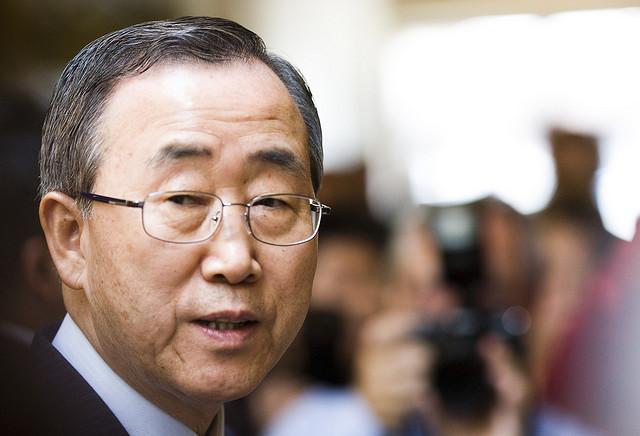 In a recent blog I raised the broader question of ‘what next after ISIS?’ The military mission is now evolving around President Obama’s statement about disrupting, degrading and destroying ISIS. But to date, the conditions which would define political success remain unclear. While the three D’s may suffice for military planners (and even there the guidance has its limits) they don’t come close to framing the political endgame.
In a recent blog I raised the broader question of ‘what next after ISIS?’ The military mission is now evolving around President Obama’s statement about disrupting, degrading and destroying ISIS. But to date, the conditions which would define political success remain unclear. While the three D’s may suffice for military planners (and even there the guidance has its limits) they don’t come close to framing the political endgame.
Without co-ordinated military and political strategies the chance of success diminish rapidly; if we are not careful the world will be left with ungoverned or—worse—ungovernable areas in the Middle East, thus perpetuating the causal factors which fuelled ISIS.
Already we are seeing key players setting conditions and pointing fingers—actions which will not only restrict the coalition’s ability to defeat ISIS but will block any hope of crafting a sustainable political solution. No better example of this exists than Turkey’s current ‘watch and wait’ approach to the battle in Kobani. In the absence of any real political strategy the future political landscape in the Middle East looks grim.
Some have warned of the end of the Sykes-Picot Middle East, while others are more sanguine. If the status quo that is Sykes-Picot were to be overturned what would the alternatives be? What would be the implications of: a form of Islamic state in parts of Syria and Iraq; an Iraq divided between the Kurds, Shia and Sunni; or a Syria under a modified Assad regime? How might the Kurds be rewarded for their efforts?
It’s difficult to see how any of those options could be managed—or indeed avoided—in the absence of any effective regional political process. The overall military campaign in the Middle East, while morally justified, is strategically short-sighted and destined to fail.
A broader political process which runs in parallel with the military campaign is needed and needed urgently—but who could champion such a step?
The US has been critical in drawing together the current coalition to combat ISIS and would certainly be one of only a handful of countries that could be guarantors of any future political outcome. But is it realistic to expect that the US could successfully lead a political course of action? They certainly believe they should and will try but the domestic pressures that the current administration faces and the broader image of the US in the Middle East suggest it’ll be a bridge too far.
Additionally the West led by the US has a terrible track record when it comes to picking winners—one doesn’t have to stray too far from examples such as the Taliban against the Soviets in Afghanistan, the anti-Assad fighters in Syria, or the anti-regime forces in Libya. In each case the outcome created has been far worse than the status quo, regardless of how repugnant, would have delivered. Political stability is needed, not the myopic pursuit of democracy—regardless of how well intended.
So, if not the US, which country or organisation has sufficient diplomatic credibility or influence to start charting the course to a post-conflict Middle East—be that with or without an embryonic Islamic State? Who could realistically start and sustain a dialogue process? Certainly countries like Iran, Russia and Saudi Arabia have potential roles and each has proxies who’ll be critical to any long-term political success, but none has the influence or desire to lead.
Religion and national self-interest will influence alignment and motivation of the key states. But ISIS is a pan-regional issue and remains the single unifying force that could motivate nations to commence a dialogue which might create a diplomatic bridge to a broader political outcome. Still, impartial diplomatic skills will be required to piece together a political framework within which a military strategy to defeat ISIS can be executed and the conditions to enable a long-term political solution in the Middle East can be found.
Traditionally, that type of proactive role has called for the Secretary General (SG) of the UN. But in recent years the SG has become essentially an observer of global events. When he has sought to step in, as he did in Syria in 2013 and more recently over Ebola, the outcome has been underwhelming. The effects of his latest efforts in relation to Libya’s civil war remain to be seen. The situation isn’t entirely of the current SG’s doing—the permanent members of the Security Council must foot a significant degree of responsibility. Nevertheless, while the Cold War has been consigned to history many of the hard diplomatic skills of that era are badly needed if political progress is to be seen in the Middle East.
It’s time for the SG to brush off those ‘good officer’ skills honed in the Middle East in the last century and start laying the foundations for the post-war Middle East. The UN has the opportunity to re-cast itself for the good not only of the Middle East but of the world. It’s critical the Security Council and in particular the permanent members take some responsibility for the current state of affairs and empower the SG to do his job—to work with member states to use the fight against ISIS to find a longer term and pragmatic outcome in the Middle East.
Michael Clifford is a senior fellow at ASPI. Image courtesy of Flickr user Thomas Hawk.